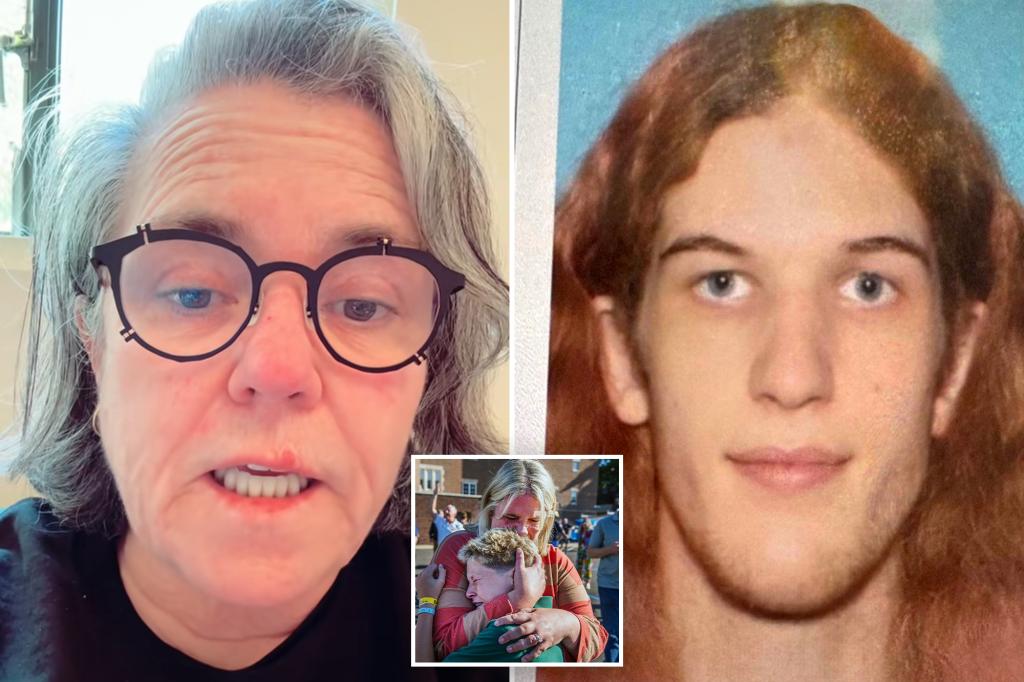Rosie O’Donnell’s Misinformation and Apology: A Case Study in Social Media Responsibility
In a digital age where information spreads at lightning speed, public figures hold significant responsibility for the accuracy of their statements. Recently, Rosie O’Donnell found herself at the center of controversy after making false claims about the Minneapolis Catholic school shooter on social media. The 63-year-old comedian and former talk show host, who has been living in Ireland since relocating after the recent U.S. presidential election, posted an emotionally charged TikTok video in which she incorrectly characterized the shooter, Robin Westman, as a “Republican, MAGA person, white supremacist.” This mischaracterization demonstrates how even public figures can fall prey to making hasty assumptions without proper fact-checking, particularly when discussing emotionally charged topics like mass shootings. The incident underscores the importance of verification before amplification, especially for individuals with large platforms and significant influence over public opinion.
The reality of the situation quickly came to light when factual information about the shooter emerged, proving O’Donnell’s characterization entirely false. Law enforcement investigations, fact-checkers, and media reports revealed that Westman was a 23-year-old self-identified transgender woman with nihilistic viewpoints and an obsession with past mass shooters. Contrary to O’Donnell’s assertions, Westman had no connections to Republican politics, the MAGA movement, or white supremacist organizations. In fact, evidence indicated Westman had written “Kill Donald Trump” on one of the gun magazines used in the attack. The shooter had left behind a final video message and manifesto pages expressing long-term plotting and disturbing statements about the victims, along with personal struggles regarding gender identity. This stark contrast between O’Donnell’s claims and reality highlights how dangerous unchecked assumptions can be, especially when they reinforce existing political narratives or stereotypes about who commits certain types of violence.
To her credit, O’Donnell eventually recognized her error and issued a public apology via TikTok. “I know a lot of you were very upset about the video I made before I went away for a few days,” she acknowledged. “You are right and I did not do my due diligence before I made that emotional statement.” She continued, “I said things about the shooter that were incorrect. I assumed, like most shooters, they followed a standard MO and had standard feelings of you know, NRA-loving kind of gun people.” Her apology concluded with, “The truth is, I messed up and when you mess up, you fess up. I’m sorry, this is my apology video and I hope it’s enough.” This public acknowledgment of error represents an important step in maintaining credibility and demonstrating accountability, though some might question whether the damage of spreading misinformation can be fully repaired after the fact.
In her original inflammatory video, O’Donnell had connected the Minnesota school shooting to broader political themes and organizations she opposes. “Saw about the Minnesota shooting, and it brought me right back to Columbine in 1999 when I just could not get it through my head that students in American were shooting each other in schools,” she stated. She went on to make claims about the shooter’s political affiliations before declaring, “The NRA is a terrorist organization. And they have been for many years,” and questioning when America would have “enough of Donald Trump? The Heritage Foundation? All their bulls–t?” These statements reveal how quickly tragedy can become politicized in our current climate, often before all facts are known. O’Donnell’s immediate reaction was to fit the shooting into her existing worldview about gun violence and right-wing politics in America, demonstrating how confirmation bias can lead even well-intentioned people to jump to incorrect conclusions.
The incident raises important questions about responsibility in the age of social media, where celebrities and public figures can reach millions of followers instantly. O’Donnell’s current residence in the Dublin suburb of Howth, Ireland, where she moved with her 12-year-old non-binary and autistic child following the recent U.S. presidential election, adds another dimension to the story. In March, she revealed they were pursuing Irish citizenship, suggesting a permanent relocation rather than a temporary move. This physical distance from the United States doesn’t diminish her influence on American discourse, particularly among her followers. The ease with which public figures can broadcast opinions globally highlights the need for heightened awareness about the potential consequences of spreading misinformation, regardless of geographic location or personal political convictions.
The broader implications of this incident extend beyond one celebrity’s mistake. It serves as a cautionary tale about the dangers of rushing to judgment, particularly when it comes to tragic events like mass shootings. In an era of increasing polarization, there’s a tendency to immediately categorize violence according to existing political narratives—attributing certain types of attacks to specific ideologies before evidence emerges. O’Donnell’s experience demonstrates how this approach can lead to spreading false information that may further inflame tensions and contribute to public misunderstanding. As consumers of media and participants in online discourse, we all share some responsibility for verifying information before sharing it, questioning our assumptions, and being willing to correct ourselves when we’re wrong. Public figures, with their amplified platforms, bear an even greater responsibility to get things right—or at minimum, to acknowledge and correct their mistakes promptly when they don’t.


